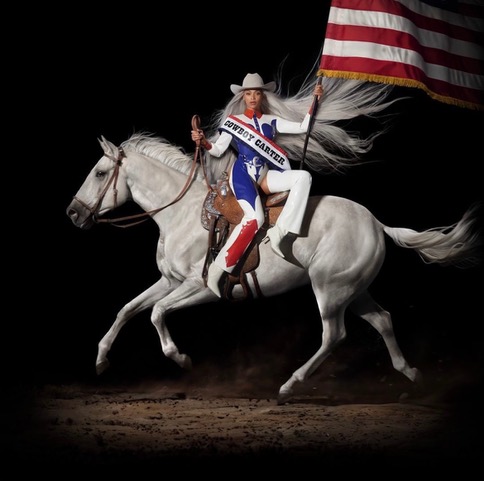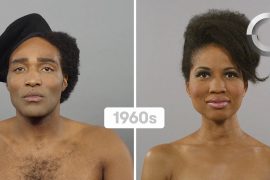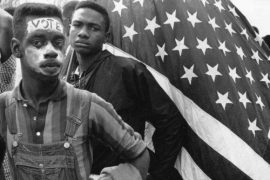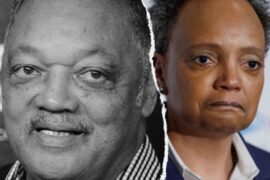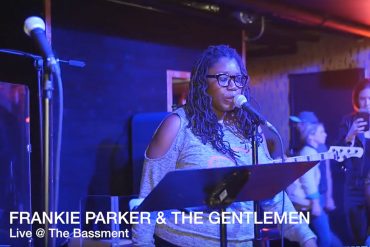Beyoncé‘s eighth studio album, ‘Cowboy Carter‘ has sparked controversy in the music world. Critics question her ability to sing Country and Western music. However, Beyoncé’s vocal prowess and undeniable talent prove she can excel in any genre she chooses. The album’s lead single, ‘Texas Hold Em,’ has already made her first Black woman ever with a No. 1 song on Billboard’s Hot Country Songs Chart.
It’s ironic how the 42-year-old singer faces harsh criticism as she makes her first foray as a Black female country singer when history shows numerous instances of Black artists having their music stolen over the years. Elvis Presley borrowed from Black Gospel music and performers like Jackie Wilson to become the iconic figure he is known as today.
The actual founder of rock and roll, Little Richard, also faced exploitation as White artists like Jerry Lee Lewis imitated his style without credit. Similarly, Mick Jagger took inspiration from bluesman Muddy Waters, eventually compensating him for his influence.
Even legendary acts like The Beatles had their first record released on a Black-owned label, Vee-Jay Records. Quincy Jones once said that music is about how you play the twelve notes available to all musicians.
In a recent Instagram post, she wrote, “This album has been over five years in the making. It was born out of an experience I had five years ago where I did not feel welcomed…and it was very clear that I wasn’t.”
Beyoncé was referring to a 2016 performance of her first country song, ‘Daddy Lessons,’ at the annual Country Music Awards. Joined by the Dixie Chicks, she put on a six-minute show that received an onslaught of social media backlash. Instead of letting the negativity deter her, she spent five years crafting her country album.
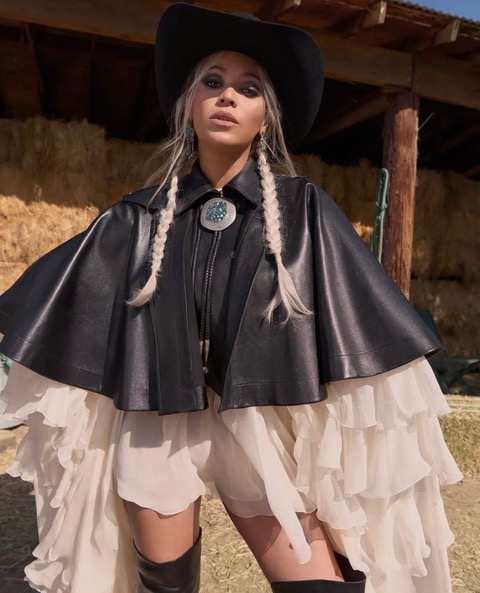
In essence, music transcends genres, allowing artists like Ray Charles to experiment with various styles effortlessly. Aretha Franklin even showcased her opera singing skills. Whitney Houston‘s rendition of the hit song ‘I Will Always Love You’ by Dolly Parton surpassed the original, proving that creativity knows no bounds.
Critics should not undermine Beyoncé’s authenticity in exploring Country and Western music. She brings her unique twist to the genre, showcasing her versatility as an artist who can make any style her own. How about let’s appreciate and respect her innovation.
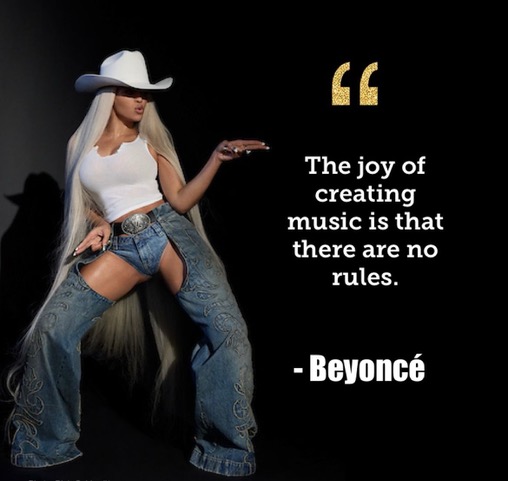
Because of her bad experience at the Country Music Awards, Beyoncé did a deep dive into the history of country music and studied its archives. The criticisms she faced forced her to push past the limitations. ‘Cowboy Carter’ is a result of the 42-year-old superstar challenging herself and taking her time to create a project that bends and blends genres together to create a masterful body of music. I love the creativity, the twist and her appreciation for history and the masters.
As Mrs. Carter recently told the press, “My hope is that years from now, the mention of an artist’s race as it relates to releasing genres of music will be irrelevant.”
Beyoncé “Cowboy Carter” Album is A Masterpiece!
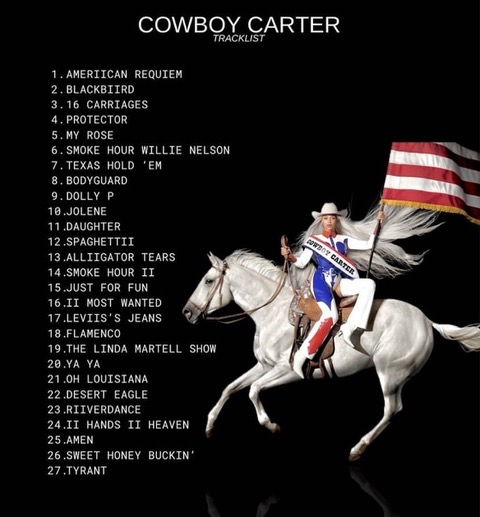
‘Cowboy Carter’ is the second of three albums in a Renaissance trilogy and another massive demonstration of the range and skill of a vastly famous commercial artist who keeps getting bolder with every release. It is packed with intelligent lyrics, astonishing singing, rich harmonies, and bold rhythms inflected with the acoustic guitars, pedal steel, and fiddle signifiers of a genre she and her (admittedly huge) team of top producers, co-writers, and collaborators have ripped apart and put back together in entirely new shapes.
Clever, sexy, angry, soulful, witty, and bold, Beyoncé stirs up the Western and puts you-know-what into the country. It’s a MASTERPIECE.
Her voice is so full of tone and timbre that she makes a threat sound like seduction. The album is 80 minutes long and has 27 dazzling, genre-defying songcraft tracks. It is a twisted and magnificent psychedelic shapeshifting folk-rock hip-hop broadside against the conservatism of the country genre.
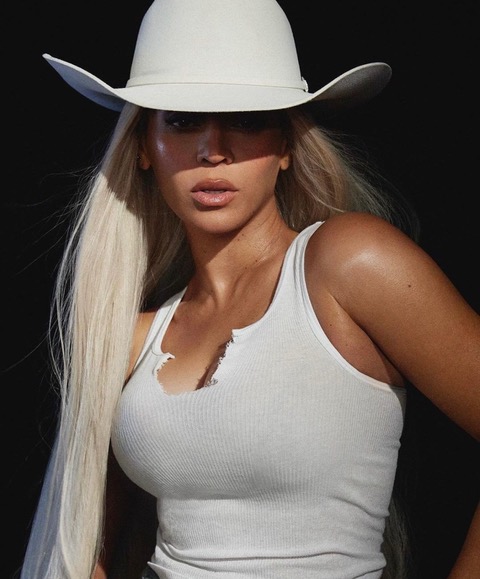
From the bravura confrontational blast of the opening epic American Requiem (which resembles Buffalo Springfield’s ‘For What It’s Worth’ reshaped into a gospel choral electronic prog rock opus), it is clear that Lady Carter has come not to pay homage to country music but to transform it. “They said I wasn’t country enough,” the Texan pop diva snaps, and “Now’s the time to face the wind.”
The croaky spoken voice of Willie Nelson (Smoke Hour) offers sneaky verbal interjections in the guise of a stoned late-night radio host (“Sometimes you don’t know what you like until someone turns you onto some real good s***”).
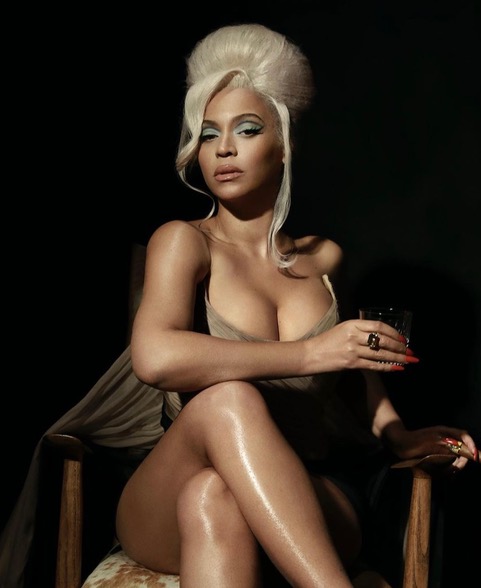
And there’s the endorsement of Dolly Parton (“Hey, Miss Honey B, it’s Dolly P”). Who else would be bold enough to completely rewrite Parton’s classic ‘Jolene’ to give the famous narrative the voice of a modern woman rejecting victimhood, not “begging” but “warning” the seductive interloper not to come for her man? “I know I’m a queen, Jolene,” Beyoncé sings over tautly looped acoustic picking and a thumping beat and she puts her rival on notice: “I’m warnin’ you, woman, find you your own man / Jolene, I know I’m a queen, Jolene / I’m still a Creole banjee bitch from Louisiana.” Stevie Wonder plays the harmonica on her rendition of ‘Jolene.’
There are plenty of categorically country sounds on ‘Cowboy Carter.’ String instruments are its sonic heartbeat, and the do-si-do of the slide guitar on ‘Desert Eagle’ and ‘Texas Hold Em’ feel perfectly matched with Bey’s feathery vocals. The jovial wiggle of the accordions on ‘Riiverdance’ tip a hat to zydeco music and the artist’s Creole heritage. ‘Protector’ (featuring her youngest daughter, Rumi).
In addition to Wonder, Act II: Cowboy Carter features musical assistance from Tanner Adell, Brittney Spencer, Tiera Kennedy, Linda Martell, Shaboozey, Willie Jones, Miley Cyrus, and Post Malone.
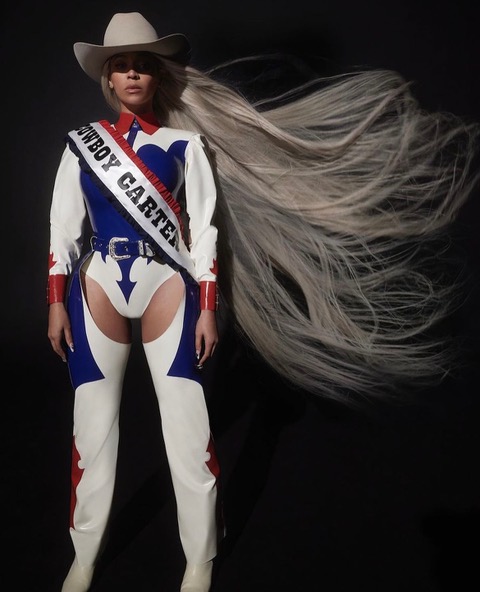
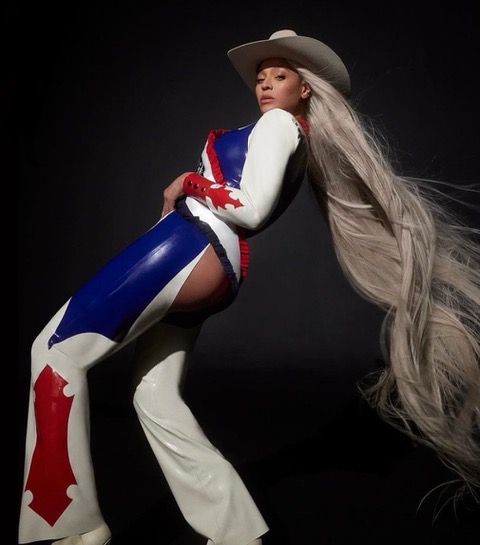
Pay close attention to the sinister, atmospheric murder ballad ‘Daughter’ that follows fast on its heels: “Your body laid out on these filthy floors/ Your bloodstains on my custom couture,” she gently sings before unleashing a skyscraping blast of what sounds like an 18th-century operatic lament.
‘Cowboy Carter’ compellingly depicts a volatile marriage in crisis and resolution. And (as Beyoncé demands to know), “If that ain’t country, tell me what is?”
There is a lot going on across Cowboy Carter, from the jerking confrontational surrealist rap of ‘Spaghettii’ (with young country rapper Shaboozey and pioneering veteran black country star Linda Martell) to the expansive psyche Americana balladry of “Alligator Tears.”
Take a listen to the ripping dance floor romp of ‘Ya Ya’ (imagine Outkast and Tina Turner performing a garage rock hip hop square dance interpolating Nancy Sinatra’s ‘These Boots Are Made For Walkin’ and the Beach Boys’ ‘Good Vibrations‘.
Yet it is all conceptually bound together, honoring the black roots of the country (there are significant shout-outs and interpolations of Sister Rosetta Tharpe and Chuck Berry, promoting black pride, and confronting endemic racism whilst pushing the palest of American music genres towards such mind-boggling Afrofuturism as the bizarre bounce and switch of Pharrell produced tri-part chant groove, ‘Sweet Honey Buckin’ – “Put some grits on the stove/Jiffy cornbread, booty corn fed/Body rolls at the rodeo/I’m coming home,” sings the Texas native, yet her country home exists in a whole different dimension to anything that has claimed this heritage before.
I applaud Lady Beyoncé for showcasing her talent outside of her comfort zone. The album is beautiful and well done. I love the way she has paid tribute to Black singers before her as well as the giants of Country and Western music. She shines; the criticism is great public relations to promote the new recording. Music knows no color and really now Country and Western ain’t nothing but the Blues.
Next.
Go girl. Keep growing. She serves as a model for all.


